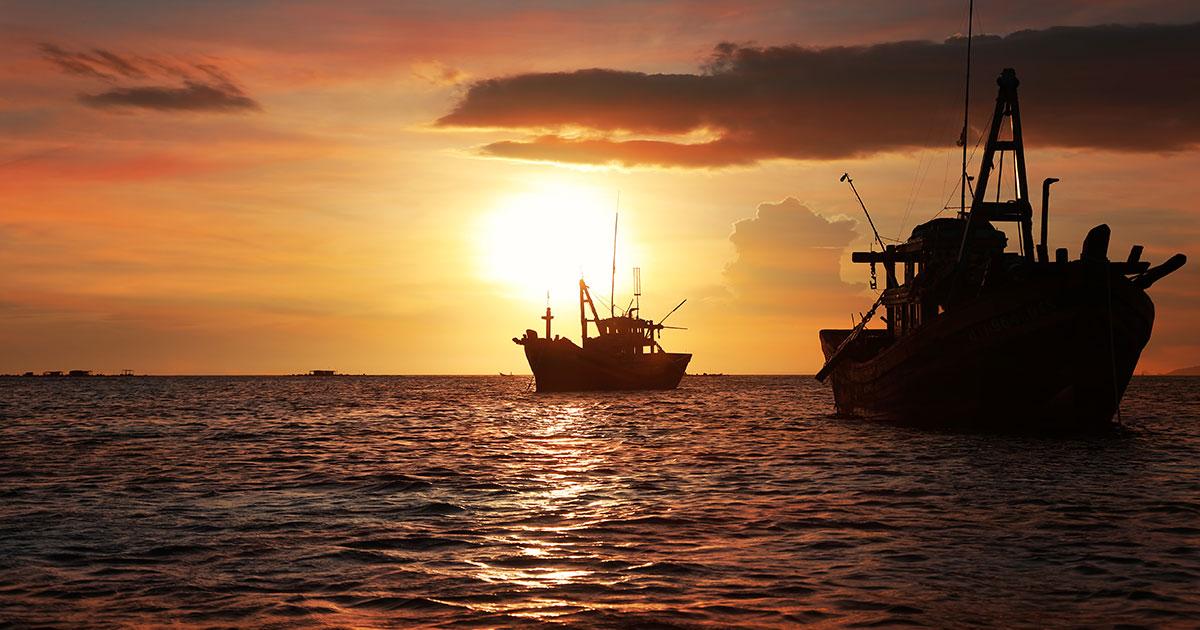Steve has been involved in the marine tracking and telematics industry in various roles since the mid-1990s based on a strong technical sales background gained in the defense industry. He has extensive experience in the commercial vessel management and fisheries vessel monitoring industries
The management of fisheries and the monitoring of the vessels that exploit these resources is more important today than ever before. The topic continues to grow in international political importance as nations compete ever harder for diminishing fish stocks and rising nationalism makes international cooperation more difficult. Encroachment on other nations’ sovereign waters and arguments on where those waters begin and end are becoming increasingly aggressive and, in some places, risk becoming militarized.
 At BigOceanData we have been working with national fisheries authorities for over twenty years, enabling them to monitor their domestic fleets via government-mandated vessel management systems (VMS) and at the same time using that information alongside other position data to identify vessels that may be involved in illegal, unreported and unregulated (IUU) fishing. Today, organizations like Global Fishing Watch are pushing national authorities to make this data publicly available as it encourages fishing boats to comply with regulations and can be used to support local fleets by discouraging illegal activity.
At BigOceanData we have been working with national fisheries authorities for over twenty years, enabling them to monitor their domestic fleets via government-mandated vessel management systems (VMS) and at the same time using that information alongside other position data to identify vessels that may be involved in illegal, unreported and unregulated (IUU) fishing. Today, organizations like Global Fishing Watch are pushing national authorities to make this data publicly available as it encourages fishing boats to comply with regulations and can be used to support local fleets by discouraging illegal activity.
This is being supported by a more recent trend that we are experiencing, that of owners of fishing fleets installing their own sophisticated VMS. High-end browser-based platforms like BigOceanData allow managers to monitor their vessels 24/7 to ensure that they stay within their licensed areas and, via a range of other data that can be combined with the same transmissions, operate at maximum efficiency.
It is this combining of data that is having a major impact on the effectiveness of VMS both as a fisheries monitoring tool and as a fleet management tool. While automatic identification systems (AIS) has progressed rapidly in recent years in reach, accuracy and refresh rates as Satellite AIS has become the norm, the fact that it can be deactivated and corrupted by a vessel’s crew makes it imperfect, especially in a compliance role. Tests have shown that it can also be externally hacked.
So, our clients on both sides of the fisheries industry are increasingly opting for fused-data products, where AIS is combined with other position sources such as Iridium, ARGOS and Inmarsat-C, and data services including SSAS. The result is a tamper-proof position signal accompanied by whatever performance and other information a client wishes, all accessed online via a single, cost-effective interface.
In an interesting development, we are also working with a client operating aerial marine surveillance, providing them with an interface that allows them to compare data on vessels observed while out on patrol with actual AIS data from the same area and time period. This is then used to identify commercial vessels not running their AIS and passed to the authorities for appropriate action. This has great potential for combating IUU fishing.
The fact is that fisheries monitoring has never been more important than it is today. Effective monitoring by both national authorities and fleet managers is more vital than ever to build trust in international treaties and agreements that cover fishing in both national and international waters. It is also crucial to identifying and addressing IUU so that confidence is restored in the system and it doesn’t descend into a free-for-all. Fortunately, the technology needed to make it happen does exist, the goal now is to encourage its wider adoption.
Opinion by Steve Jones, Founder and Chairman of BigOceanData





